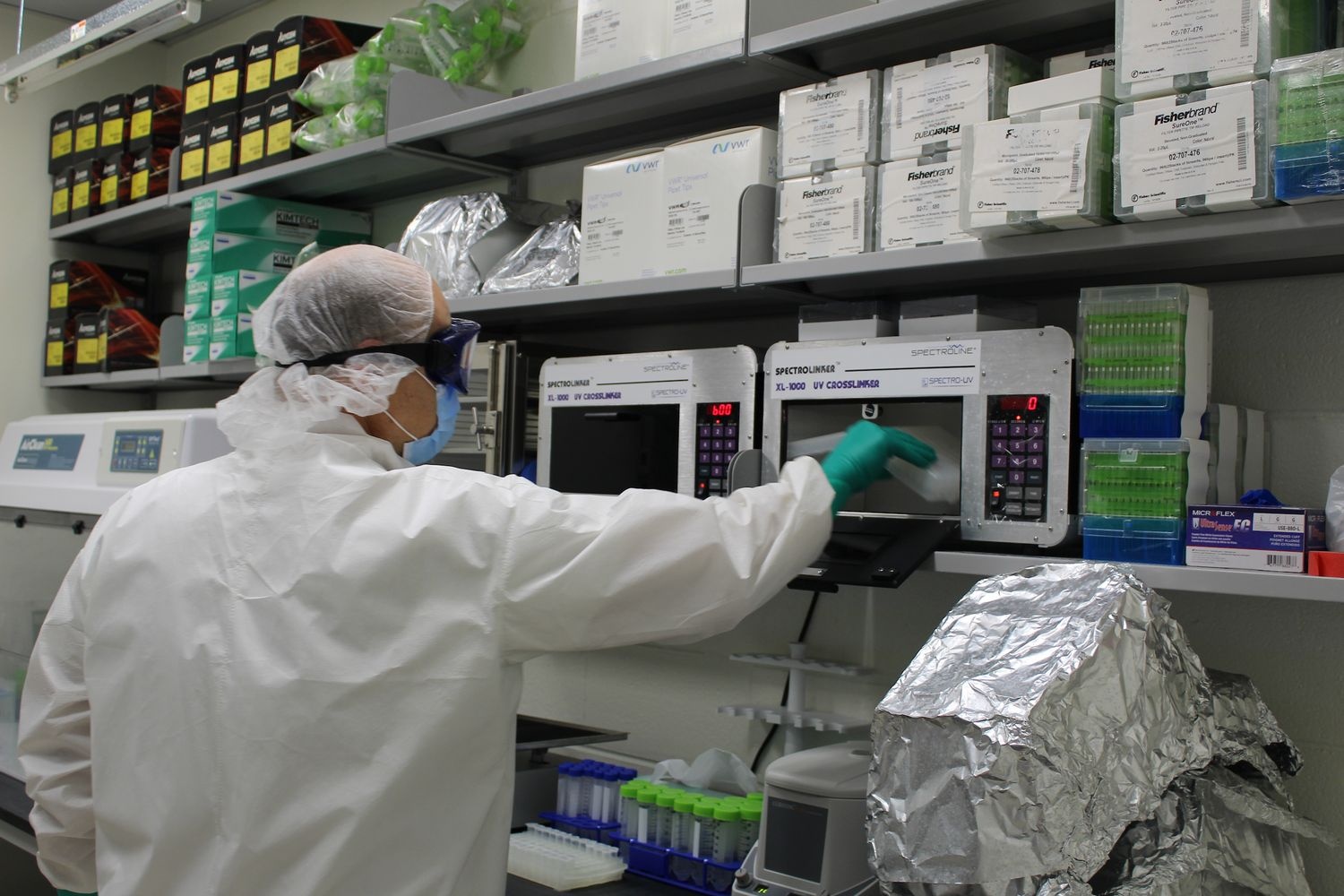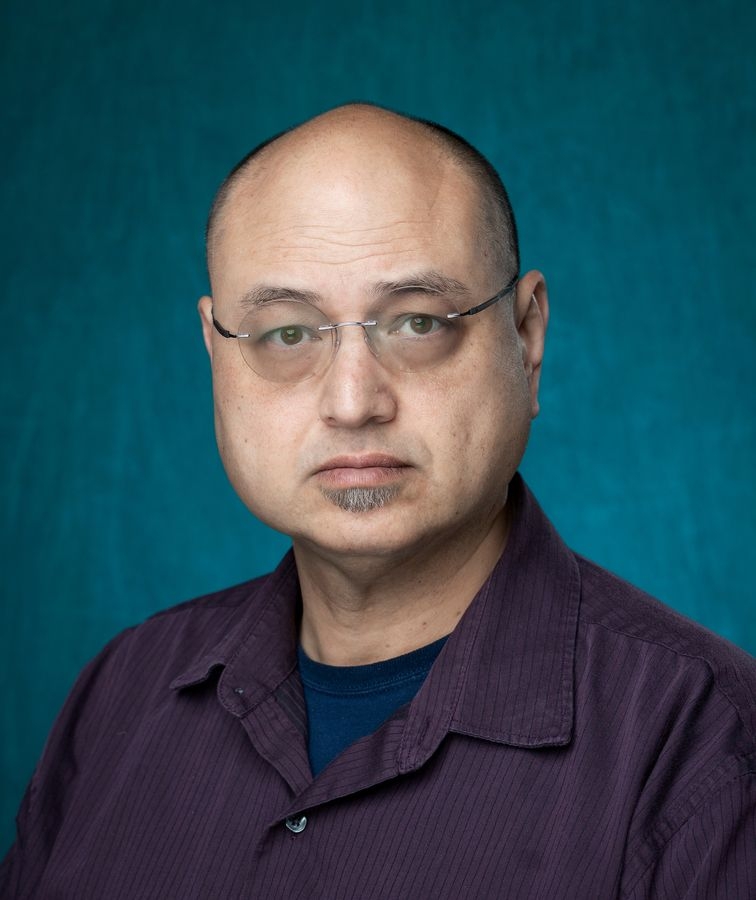
Photo: Rachel Mahoney/UNCW
Accessing the new Rogers Ancient DNA Laboratory in Sartarelli Hall is a meticulous process.
Leland Rogers, assistant professor of biological anthropology, suits up in protective gear from head to toe before he enters the clean room and performs a thorough decontamination process and pulls on an extra pair of gloves.
That extra measure of care is because, as the name suggests, Rogers is working with extremely delicate ancient samples in this lab — including 2,000 year old human remains from imperial tombs in Mongolia belonging to the Xiongnu people.
When the lab became operational late in the spring, it meant Rogers could continue postdoctoral research that took him to Yale, University of Manchester and University of Illinois-Chicago.
The ancient DNA lab on campus features UVC lamps and a high-efficiency air filtration system that keeps out contaminants, and is set up using British forensic DNA clean room standards, which Rogers said are more thorough than American standards.
“I will be using single-strand next generation sequencing (NGS) protocols for the first time in this lab,” he said. “As opposed to double-strand, single-strand NGS protocols are particularly efficient at ancient DNA analyses where DNA segments are inconsistent and particularly short compared with the ‘old reliable’ double-strand protocols, used by Svante Pääbo's lab for creating the Neanderthal Genome.”
Rogers said he’s using single-strand NGS for the Xiongnu remains and dog remains from Costa Rica dating back 800 to 1,000 years, while using double-strand NGS for 200-year-old cattle remains from Virginia.
He said projects in the ancient DNA lab will focus on important samples and small collections of samples from one or a few related locations, in attempts to understand local population dynamics compared with the growing data from published databases. Starting in the spring, Rogers will be working with undergraduate students as part of independent study courses.
This article has the following tags: Research & Innovation myUNCW - Faculty & Staff College of Humanities, Social Sciences, & the Arts Research & Innovation Anthropology



